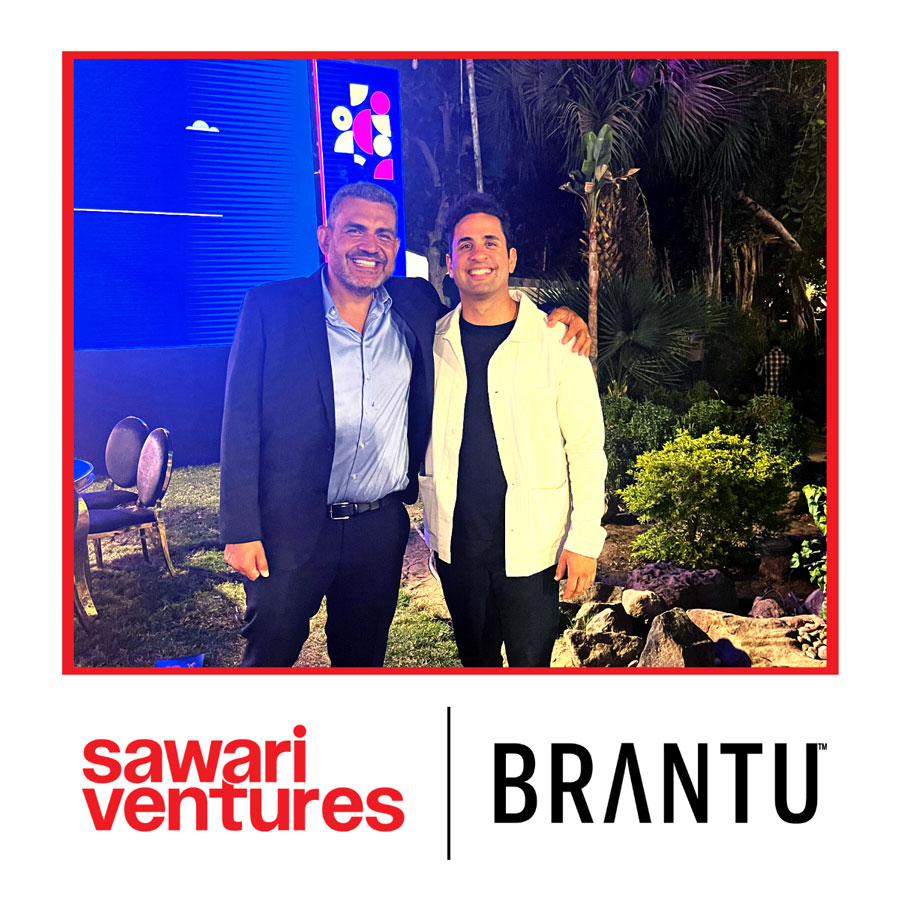This time around, we are turning our attention to BRANTU. BRANTU offers a globally unique tech platform that enables digital creators worldwide to launch their fashion styles within hours. Brantu handles the end-to-end supply chain powered by just-in-time manufacturing to deliver their styles within a week’s time to the end users. To date, Brantu works with more than 600+ digital creators and 15+ manufacturers.
To better understand what sets BRANTU apart, the kind of impact it has had, and where the company can go, we asked BRANTU founder and CEO, Mohamed Rizk (Seemo) and Sawari Ventures Partner, Wael Amin to share their insights.

Seemo, what would you say sets BRANTU apart from other players in the ecosystem/industry? Where do you think you will be able to have the biggest impact?
We differ from other players because of our DNA. BRANTU considers itself a B2B2C platform for digital creators that enables them to launch their products smoothly, whilst other competitors are direct-to-consumer brands. With our strategy, we enable many micro-distribution points worldwide, making our model much more sustainable and focusing on key components of design, manufacturing, and technology.
In recent years, the fashion industry has received some criticism about deplorable working conditions in their supply chains (and rightfully so). As a relatively small player globally, we can’t always mitigate this. But we can make sure we do things differently wherever we can. We were excited to bring our own production to Egypt, where we have been able to carefully select the manufacturers we work with, contribute to the creation of decent jobs in the country, and maintain oversight and control over our first-tier suppliers.
Wael, when deciding to invest in BRANTU, what was the kind of impact you were hoping it to have? Both on the industry as well as the wider ecosystem/society?
We were attracted to BRANTU because of the founders’ vision that looking good should be a universal human right and their mission to make fashion discoverable, available, and accessible. The Egyptian ready-made garment industry, despite long-standing traditions, has historically fallen short of its potential and has been largely confined to contract manufacturing for western brands. We believed in the BRANTU team’s capability to use technology to reinvent the design, sourcing, manufacturing, merchandising, and efficient global distribution processes, which have been historically stagnant, and in doing so, helping local manufacturers achieve a lot more of their potential.
Seemo, how was Sawari able to help you capitalize on your impact potential? And what generally would you say is the value add an investor can bring to a company like yours?
VC partners like Sawari enabled and pushed the mindset of the founders to be more innovative. Sawari’s support came in cash, advisory, structure, and opening up connections to partners and future investors. This is very important to the success of the business.
Wael, looking ahead, where do you see BRANTU in 2/5/10 years? What are you hoping its long-term impact could be?
We think BRANTU has been a trailblazer in fashion in Egypt, having literally turned the traditional fashion e-commerce business model on its head, delivering a less wasteful, more sustainable, and ultimately more profitable business. We believe BRANTU’s creative approach will help it grow well beyond the Egyptian market and will help set a better standard for fashion e-commerce for the upcoming generations.


